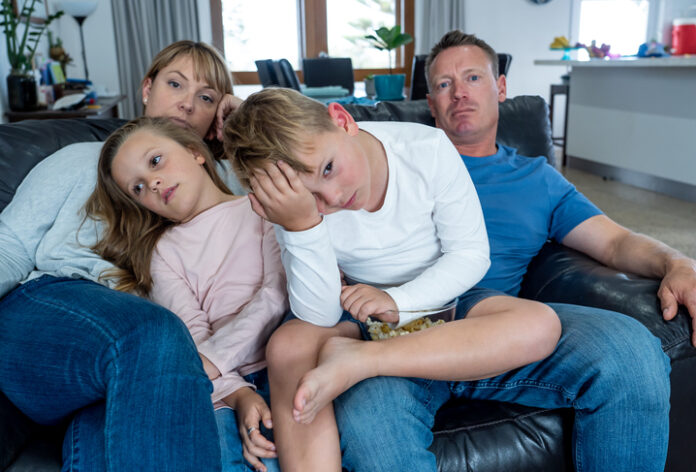Despite optimism that the COVID-19 vaccine will bring back a normal life, public health officials warn that lockdowns and other social distancing measures will remain in place.
The United Kingdom’s top doctor, Jonathan Van-Tam, said at a news conference on December 31 that it would be at least several months after the vaccines are rolled out before people should feel comfortable behaving with “wild abandon.” According to The Times, Van-Tam told reporters it is not clear if vaccines will stop people from transmitting the virus even though they, themselves, may be protected, according to The Times.
A similar warning was given in the United States. Timothy Brewer, M.D., a professor of medicine at the David Geffen School of Medicine at UCLA, said that many restrictions will remain in place and it will take a long time for the vaccine to have pronounced effects.
“Given how long it will take to address those most in need, we will see no noticeable change for the near future, just because there isn’t enough vaccine to have any meaningful impact immediately,” Brewer stated in an article in Healthline on December 15.
Public Losing Patience
Lockdowns have been in effect throughout the world for one year, and there are signs the public is losing patience.
A study by the University of Southern California published on November 16 found that less than half of those surveyed reported full compliance with stay-at-home orders. Responses depended on age, with older people reporting they were more likely to engage in masking and other public health orders.
An anti-lockdown movement seems to be growing, says Jeffrey A. Tucker, editorial director for the American Institute for Economic Research, and author of Liberty or Lockdown. Tucker told The Heartland Daily Podcast that part of the reason is that the lockdown policies have been so egregious.
“It has been interesting to see how so many people have come around now to see that it has been such a gigantic mistake,” Tucker said.
Vaccine Hesitation
There are signs that the public is not robustly embracing the COVID-19 vaccines. A report in VOX on January 11 states that at least 40 percent of health care workers have turned down an opportunity to receive the vaccine. Left-over vaccines are being distributed to those lower on priority lists, like law enforcement and employees at public venues.
The response seems to contradict what studies in December reported. The Kaiser Family Foundation found that health care workers were no more different than the rest of the population in being hesitant about the vaccines. Under 30 percent in both groups said they were unlikely to get the vaccine immediately. Eighty-five percent of health care workers in a survey by Yale Medicine and Yale-New Haven Health Systems said they were extremely likely to get the COVID-19 vaccine, but so far 53 percent have received one.
It has been a worrisome trend.
“We want [health care workers] not only to protect themselves, but we also want them to be educating their patients so that everyone across the United States understands that these vaccines are available, that they have a good safety profile, that they are working,” Nancy Messonnier, of the U.S. Centers for Disease Control and Prevention (CDC), told VOX.
Vaccines, the Silver Bullet?
The effectiveness of whether vaccines will provide a complete shield against a virus is also in question.
The results of clinical trials by manufacturers Pfizer-BioNTech and Moderna suggest that immunity created from their mRNA vaccines is incomplete, “meaning that not all infections were stopped and there was no reduction in the handful of serious cases requiring hospitalization,” wrote Peter McCullough, M.D., an internist, cardiologist, and researcher at the Baylor Heart and Vascular Institute in a blog post on December 30 in TrialSiteNews.
McCullough has been working to expand treatment of COVID-19 at its very early stages in outpatient settings, such as with the off-label use of existing drugs, outside clinical trials, that have shown promise in stopping the virus from replicating but have been blocked by federal health agencies (see related article, page 13).
McCullough explained his reasoning for why vaccines might not be a silver bullet.
“Incomplete immunity is expected since these vaccines raise antibody and cellular responses only to the spike protein portion of the virus,” McCullough writes. “The mRNA vaccine directs human cells to produce the spike protein temporarily, and then the immune system responds to it within and outside of cells. While the CDC calls the spike protein ‘harmless,’ research has shown it is not only responsible for viral entry, but it may be responsible for many of the symptoms of COVID-19. Thus, the illness caused by the vaccine especially on the booster injection is explained.”
Natural immunity “appears to be far superior to vaccination,” writes McCullough.
“Because the Pfizer-BioNTech and Moderna clinical trials were analyzed prematurely after two of the planned 24 months of observation, we simply cannot know at this time if the vaccination will provide durable protection,” McCullough writes. “Already there is discussion of once vaccinated, to make a commitment to annual or semiannual booster shots.”
Natural immunity has been hampered by lockdowns and the abundance of health precautions pushed by the CDC, Tucker says.
“All the sterilizations people are doing, all the social distancing, staying indoors, masking, these things are weakening our immune systems,” Tucker said. “Immune systems get better with practice and through exposure and not living in a perfectly sanitized world in isolation like some primitive tribe. It is dangerous to our health.”
Kelsey Hackem, J.D. (khackem@gmail.com) writes from Washington State.
AnneMarie Schieber (amschieber@heartland.org) is the managing editor of Health Care News.



















